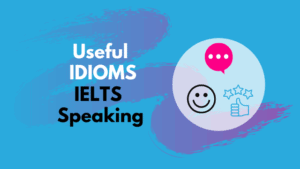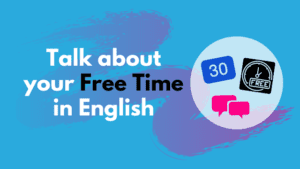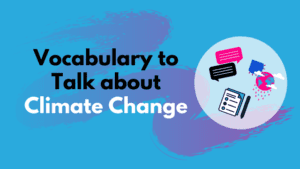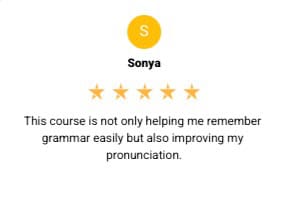👇 Take this lesson with you! 👇
Table of Contents
In this lesson, we’re diving into the world of phrasal verbs to spice up your English speaking skills, especially if you’re preparing for the IELTS Speaking test.
Phrasal verbs, you may remember, are verbs followed by one or two prepositions, and this changes the meaning of the original verb.
For instance, To come off means to work or be successful.
My plan to learn English has come off, I passed my test yesterday.
Phrasal verbs can be tricky, but they’re a fantastic way to sound more natural and fluent. Let’s explore eight advanced phrasal verbs that can make your spoken English sound more natural.
To Come Round
“To come round” can mean to change your opinion and finally agree. For instance,
Emily was hesitant about joining our course, but she eventually came round after seeing its benefits.
To Jump At
When you “jump at” something, you eagerly seize an opportunity. For instance,
Emily jumped at the chance to join the course when offered a free spot.
To Crack Down On
This phrase means taking serious actions to stop or control something undesirable. For instance,
The government is cracking down on fraudulent online businesses
To Go Through With
To “go through with” something means to follow through with a plan despite challenges. Such as,
Despite her doubts, Emily decided to go through with starting her own business.

To Catch On
“To catch on” has two meanings:
1) to become popular or
2) to understand something.
Here’s an example for each,
Country music is really catching on globally
It took me a minute, but I finally caught on to how the app works
To Fill In
This phrasal verb also has different meanings. It can mean to complete a form or to update someone with information. For example,
I filled in the application last night,
Let me fill you in on the latest project updates.
To Talk Into/Out Of
These are useful when discussing persuasion. “To talk someone into something” means to persuade them to do it, while “to talk someone out of something” means to dissuade them. For example,
Emily’s friends talked her into starting her own business, but her parents tried to talk her out of it due to the risks involved.
To See Through
“To see through” can mean to support someone during difficulties, to discern hidden truths, or to persist with a challenging task. Here are three examples, one for each.
Emily saw the tough times through with help from her mentor
She saw through the deceptive offers that came her way.
Despite facing many challenges, she was determined to see her studies through to the end.

Here is a story that uses all these phrasal verbs in context, so you can better understand and learn them.
A Phrasal Verb Story: A Cracking Opportunity
Emily had always dreamed of starting her own online business, but she was unsure if she should do it. One day, she received an invitation to join a famous business school programme. This would show her how to start and run a new business.
At first, Emily wasn’t sure if she should go through with applying. She had some doubts. However, her friend Mike, who had joined the programme the year before, filled her in on all of the benefits.
As Mike talked and explained the details of the course, Emily finally caught on and realised what an amazing opportunity this was, especially as the programme was free.
Although she was reluctant at first, she finally came round because she knew that if she didn’t take this opportunity, she might regret it later. Mike had easily talked her into doing it, so she decided to see the application process through to the end.

Weeks went by, and Emily anxiously awaited the results. Finally, she received an email telling her that she had been accepted into the program. She began the course and was so excited, but soon, a new challenge emerged.
Emily’s family, were worried about the risks of starting an online business. They tried to talk her out of pursuing her dream. They knew that the local government was cracking down on new businesses that were setting up illegally and scamming people. They told Emily she should continue with her current job.

Despite their concerns, Emily decided to go through with doing the course and she went on to set up her own new business.
As she started, she faced many obstacles and challenges, but she was happy that she had jumped at the chance to do the course, and that she had seen it through because it helped build her confidence and her belief that she could make it a success.







